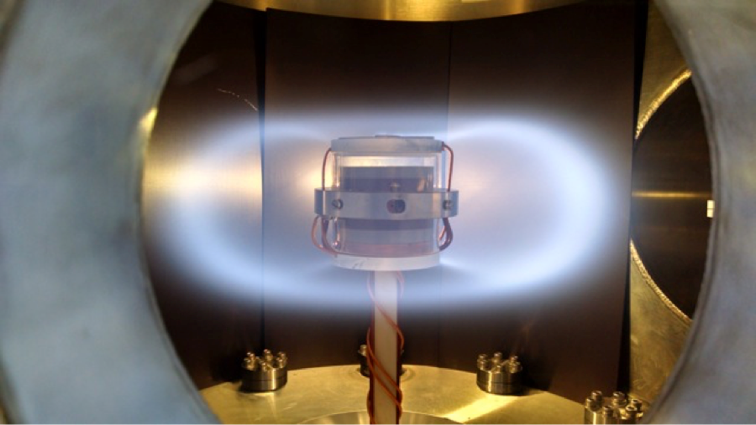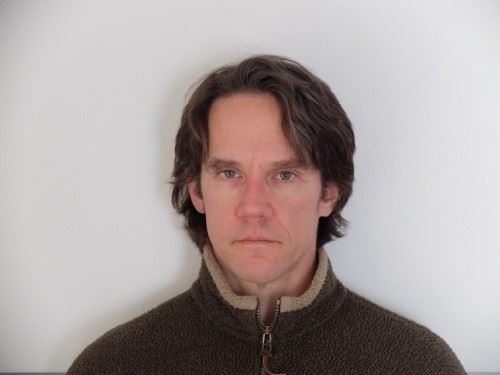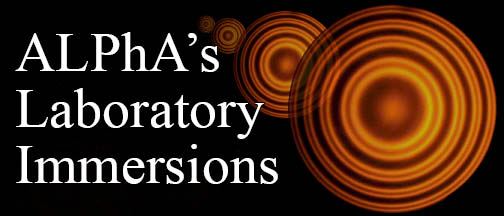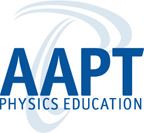- Home
- What We Do
- Laboratory Immersions
- Immersions 2021
- Imm2021Madison_Terrella
University of Wisconsin - Madison, Madison, WI
Terrella—Earth’s Magnetosphere in the Lab
Dates: June 2, 2021 to June 4, 2021
Number of setups available: 1
Maximum number of participants: 2
------------------------------------------------------------------------------------------------------------------------------------------
 A terrella (“little earth”) is a permanent magnet mounted in a vacuum vessel. The dipole field of the magnet is capable of confining a plasma. This plasma can be considered as a toy model of the Earth’s magnetosphere. Emphasis will be placed on making equipment in-house wherever possible.
A terrella (“little earth”) is a permanent magnet mounted in a vacuum vessel. The dipole field of the magnet is capable of confining a plasma. This plasma can be considered as a toy model of the Earth’s magnetosphere. Emphasis will be placed on making equipment in-house wherever possible.
Available Experiments include:
0) Vacuum techniques and electrical hookup primer No prior knowledge of vacuum techniques associated with base pressures in the 1 mTorr range is assumed; participants will also receive basic training (if needed) in arranging appropriate grounds in a magnetically-confined plasma system.
1) Diagnosis of plasma density and temperature with Langmuir probes Participants will use a Langmuir probe to measure plasma density and temperature, and learn to differentiate Langmuir probe traces that are simple to analyze from those that are complicated .
2) Diagnosis of plasma temperature with spectroscopy
Participants will learn how to use spectral line intensity ratios to estimate the plasma temperature.
3) Microwave plasma experiments
Participants will explore the physics of microwave breakdown of magnetically-confined plasma.
Participants need not bring any special equipment to the Immersion.
SAFETY WARNING: Lethal voltages (~100 V) are present on exposed wires; microwaves used in experiment 3.
COSTS
The cost of building a terrella comparable to the UW terrella from new parts would be over $10,000, the main costs being in the vacuum vessel and the turbo-pump needed to reach mTorr pressures. A very low-cost alternative, comparable to a plasma ball, is under development and will be discussed at the Immersion.
Mentors: James Reardon
 Dr. James Reardon is director of undergraduate studies at the Department of Physics at the University of Wisconsin—Madison. He received B.S. degrees in Physics and in Astronomy from the University of Maryland—College Park, and a Ph.D. in Physics from MIT, working on the interaction of RF with tokamak plasma. He has guided students to run the terrella in UW—Madison’s Advanced Laboratory since 2018.
Dr. James Reardon is director of undergraduate studies at the Department of Physics at the University of Wisconsin—Madison. He received B.S. degrees in Physics and in Astronomy from the University of Maryland—College Park, and a Ph.D. in Physics from MIT, working on the interaction of RF with tokamak plasma. He has guided students to run the terrella in UW—Madison’s Advanced Laboratory since 2018.
Dr. James Reardon, Department of Physics, University of Wisconsin—Madison, 1150 University Ave, Madison, WI 53706. Email: jcreardon@wisc.edu. Phone (608) 262-0945.
Please note that the Jonathan F. Reichert Foundation has established a grant program
to help purchase apparatus used in Laboratory Immersions. Limitations
and exclusions apply, but generally speaking the Foundation may support
up to 40% of the cost of the required equipment.





